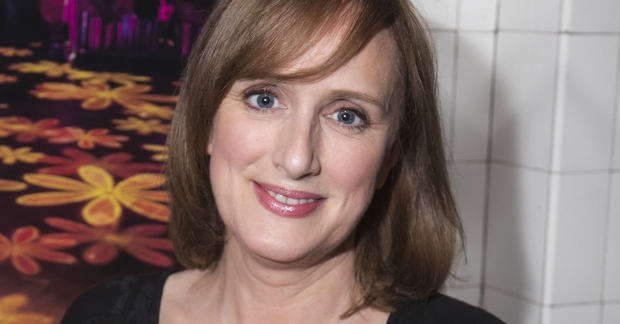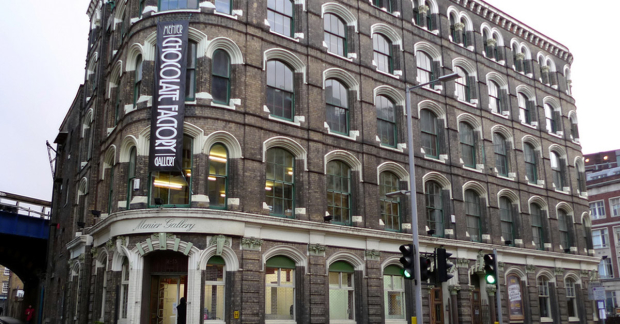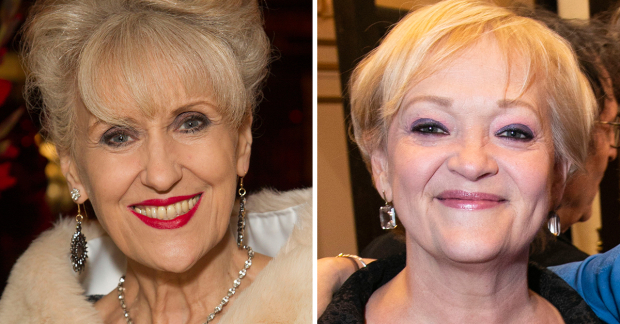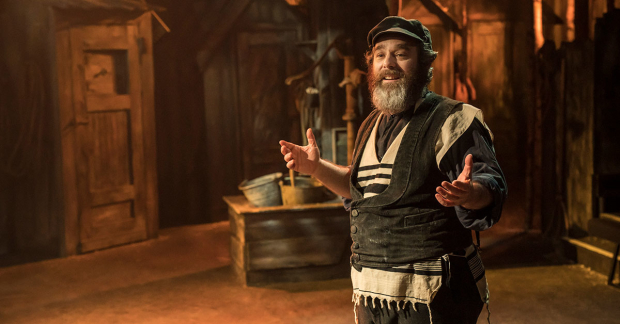Review: Orpheus Descending (Menier Chocolate Factory)
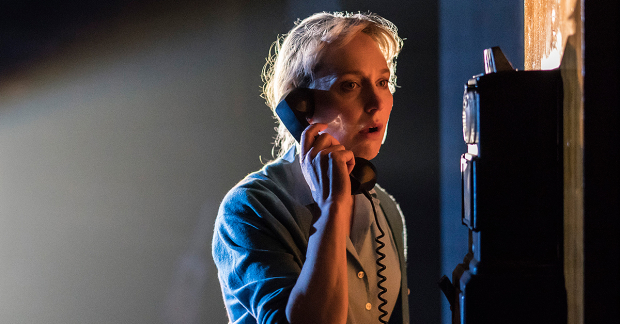
© Johan Persson
Women directors are mining a rich vein of insight and emotion in the classic American plays of the 20th century at the moment, and finding a seam of toxic masculinity that makes them speak in loud and different ways. After Marianne Elliott and Miranda Cromwell's truly devastating Death of a Salesman at the Young Vic, Tamara Harvey turns a steely gaze on this Tennessee Williams' oddity and reveals new meanings in its melodramatic shadows.
It is undoubtedly a strange play, one that Williams fiddled with incessantly from its first appearance in 1940 as Battle of Angels to its Broadway premiere under its current title in 1957. It was also a not much-loved film called The Fugitive Kind, starring Marlon Brando, as Valentine Xavier, the guitar-strumming drifter whose arrival in a small Southern town precipitates the action.
The plot is shaped on the lines of Greek tragedy as forced through the hot haze of a William Faulkner novel. Valentine takes up residence in the small goods store of Lady, a woman literally sold into a cruel marriage after her Sicilian father – "The Wop" – was burnt to death in an arson attack on his outdoor restaurant after he served alcohol to the local black community. His presence inevitably triggers tragedy, and part of the tension of the play is waiting for the terrible outcome that you know awaits.
Yet impressively, Harvey – in this co-production between her own Theatr Clwyd and the Menier – holds the overarching weirdness of the story at bay, building her interpretation line by line, creating a vivid sense of a closed-in community where women have no rights, and turn to bitter gossip and fear of any outsider, while their menfolk rule with guns, and dogs, and lynching. Watching it on the day the Alabama legislature outlawed abortion, made it seem that the conservative South's contempt for women so vividly displayed here, has not moved very much since Williams first observed it.
But Harvey is also good at giving the heady themes of Williams' writing – the oppositions of freedom and oppression, art and violence, kindness and cruelty, life and death – room to breathe and grow. The decision to let Valentine Hanson as the black beggar Uncle Pleasant, the voice of the excluded wild, speak the stage directions, brings a note of poetry to proceedings, adding to the sense that what we are watching is both metaphorical and real.
The production is, at the start, wonderfully austere, with Jonathan Fensom's simple wood store front opening up a recess into darkness at the back of the Menier's tiny stage. Heavenly music and misty light accompany Valentine's entrance, and his fatal decision – like Orpheus – to turn back, to stay to help Lady whose vicious husband is dying upstairs.
As Lady, Hattie Morahan magically finds a combination of real resilience and rising desperation; her Lady is very direct and straight-forward, a woman used to damping down emotion and getting on with things. She is quieter and less flamboyant than she is sometimes played, but all the more touching for that. Her eyes are full of sadness, but also a kind of fragile hope that there is still a possibility to fly, to rest on the wind, like the legless bird Valentine describes to her.
Seth Numrich (so brilliant years ago as another of Williams' wounded outsiders in Elliott's production of Sweet Bird of Youth) plays Valentine less as a "fox in a hen coop" and more as a gentle charmer; there's a sense that women love him not just because he is so handsome and potent but also because he simply listens to them in a way their bigoted husbands do not. The scene where he quietly cares for Carol Royle's damaged religious visionary is as intense and involving as those between him and Lady. It's a finely nuanced performance.
Elsewhere acting wise, the women of the ensemble are generally stronger than the men, with Jemima Rooper managing to make a person out of the difficult role of the town's misfit, Catrin Aaron and Laura Jane Matthewson finding different beats as the dangerously vindictive wives, and Jenny Livsey and Carrie Quinlan positively spooky as a couple of strange sisters.
Towards the close, the action gets more cluttered and the staging slightly loses its grip. But by then Morahan and Numrich have so involved you in their struggle to live and to love that the echo of their tragedy lingers long into the night.



